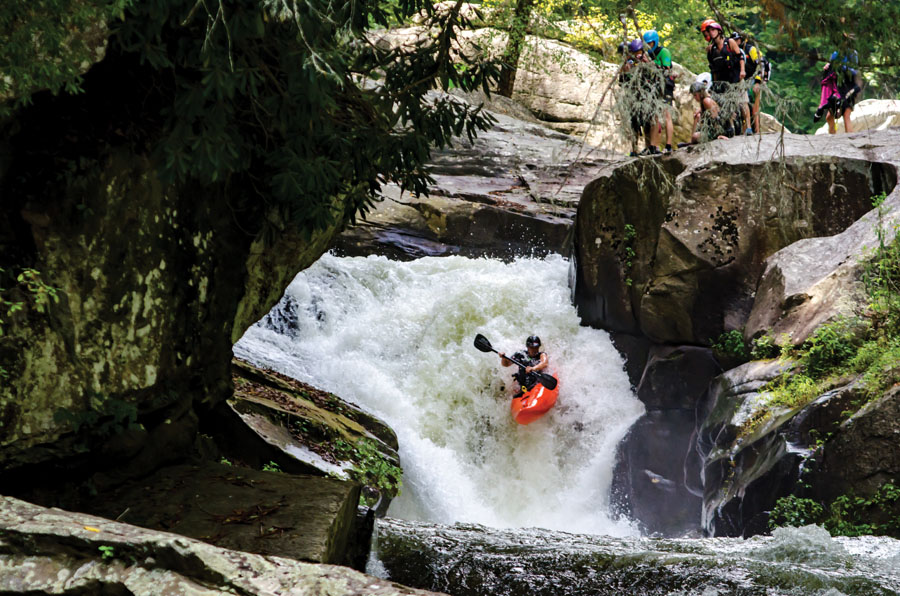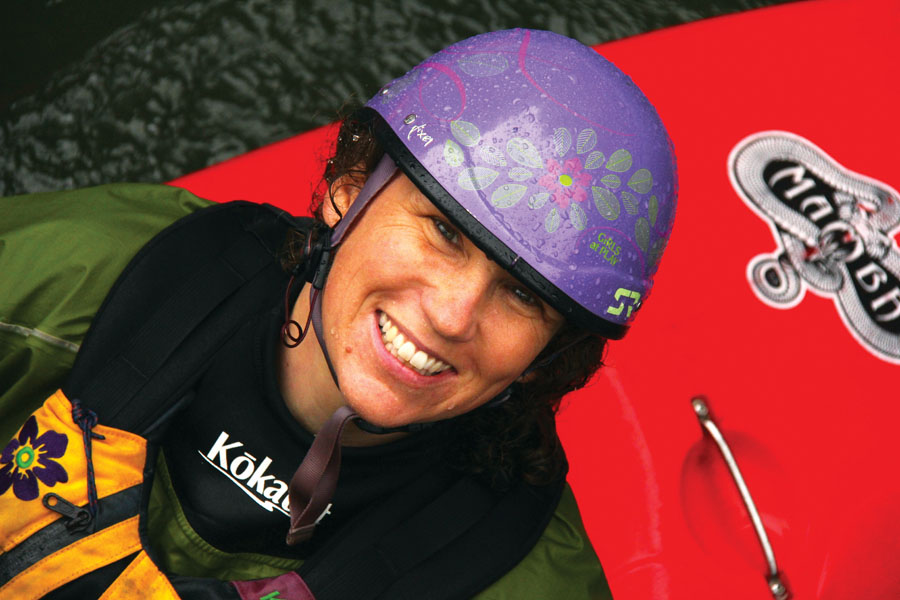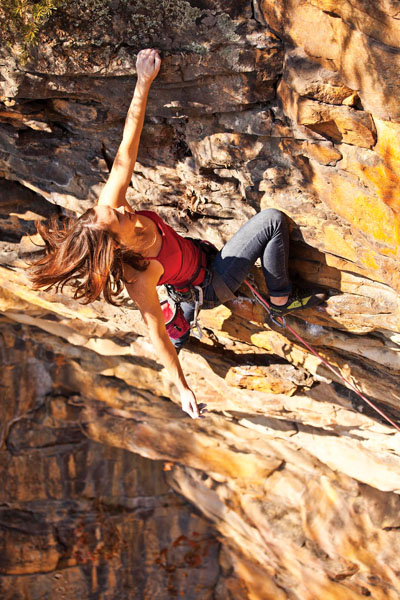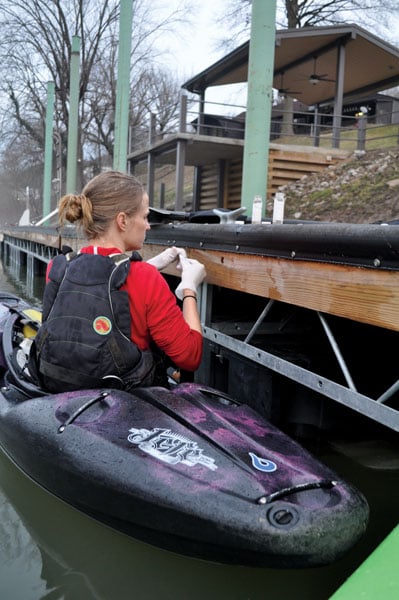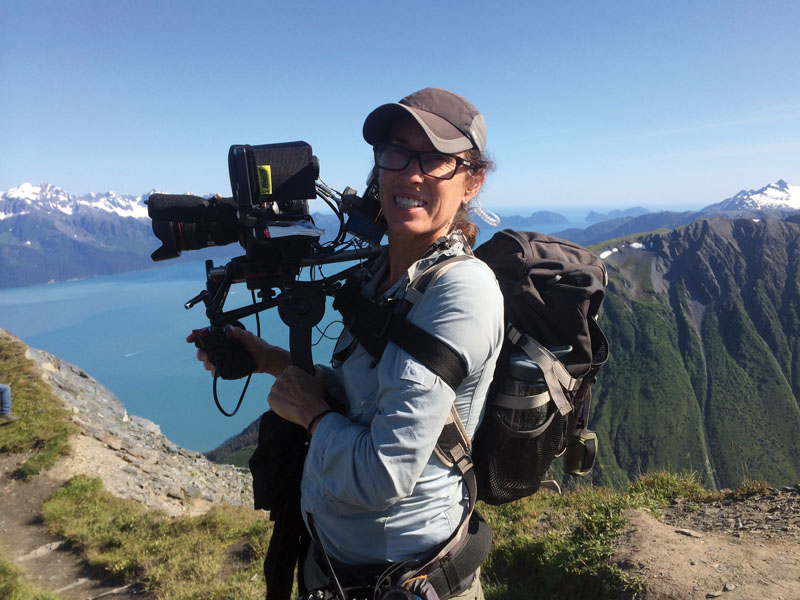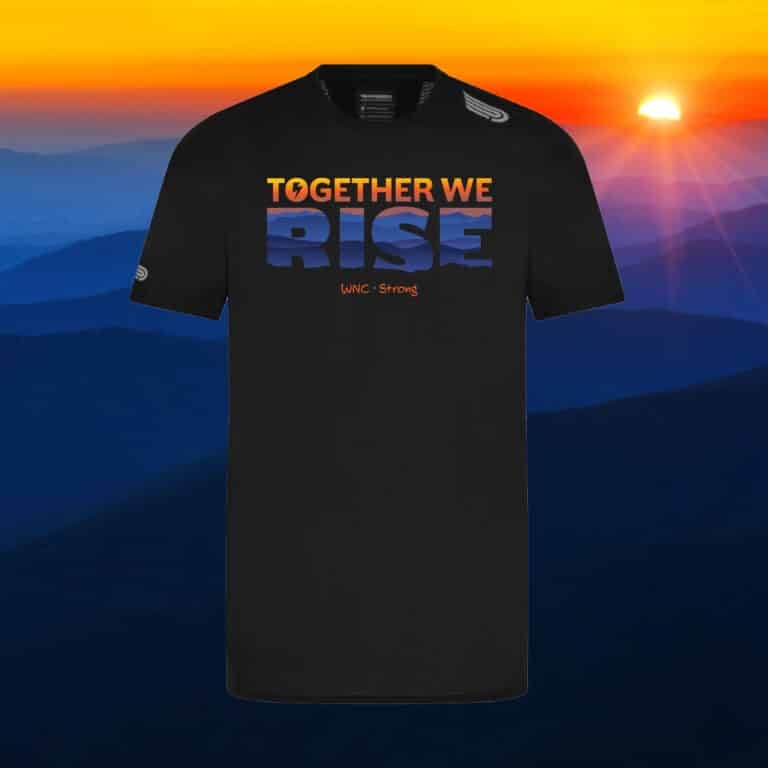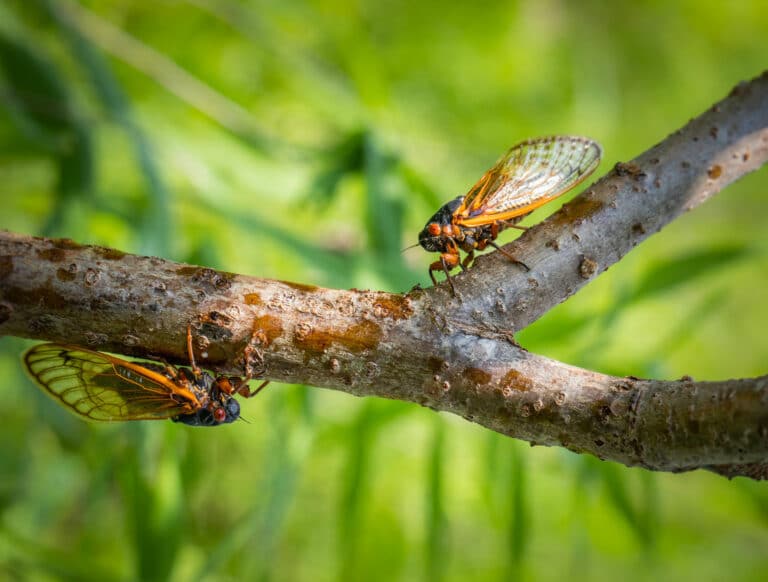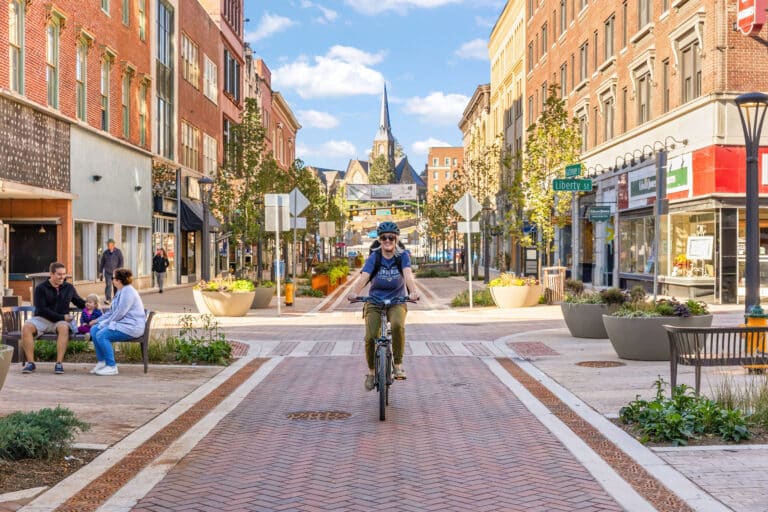Photo by Chad Blotner
I learned to kayak from men, paddled with men, received a rope-bag-to-the-face from men. It’s a fact: men dominate the world of whitewater. While that’s not necessarily a bad thing, ultimately, most accomplished female athletes in any adventure sport tend to get overlooked. Meet four adventure pioneers, and two up-and-coming forces, who push the limits and kick ass, all with the grace of a woman.
The Paddler
Anna Levesque, 41
Founder, Girls at Play
Asheville, N.C.
Photo by Anna Wagner
STARTED PADDLING: while working in the kitchen of a rafting company in Quebec.
ACCOMPLISHMENTS INCLUDE: competing as a member of the Canadian Freestyle Team for five years, receiving bronze at the 2001 World Championships in Spain and several top three finishes between 1999 and 2004, and founding Girls At Play (GAP) in 2004, which offers whitewater kayak, SUP, and yoga educational programs for women.
Why kayaking?
I fell in love with just how people that were really into kayaking and raft guiding were following their passions. That was very different for me compared to the household I grew up in which was very conventional—you go to college, get a job, you make money. I was on track to go to law school but when I started kayaking my life took a 180-degree turn. I never looked back.
What challenges did you face in height of your competitive paddling career?
At the time I started paddling at the pro circuit, there was definitely some harshness. There was a competition almost every weekend at that time and I was paddling a lot of hard stuff. I really became aware of my fear and doubt and lack of confidence, and noticed how that was exacerbated when I was paddling with all men. They approached the river differently. I was told you gotta watch what we do and just learn that way. There wasn’t a whole lot of feedback and if there was it wasn’t kind.
Did you ever feel like giving up?
It didn’t deter me. I kept competing, and had some really good success in the competition world, but still felt that lack of confidence. The more I spoke with my female colleagues and paddlers…they had very similar feelings and experiences.
How have you found that men and women are different?
We all have the fight or flight response, but women also tend and befriend—the important part is the befriend part. A female’s desire to affiliate with other women in stressful situations is one of the biggest differences between the genders, where men tend to be more comfortable standing on their own in stressful situations.
Though your focus with GAP is primarily on women in whitewater, do you have any advice for female athletes in general who may feel hindered by doubt or fear?
If the fear weren’t present, then there would be no growth. Instead of getting overtaken by fear or letting yourself downward spiral into doubt, just accept that that’s there and you have the chance to act anyway. That’s the gem—being courageous is feeling fear and accepting fear but acting anyways in a responsible manner.
What are the first three words that come to mind when you hear the words “like a woman?”
Powerful, integrity, compassion—these words are colored by the women that I surround myself with.
The Climber
Elaina Arenz, 41
Owner, New River Mountain Guides
Fayetteville, W.Va.
Photo by Chris Noble
STARTED CLIMBING: while attending the University of Texas at Austin
ACCOMPLISHMENTS INCLUDE: establishing Mexico’s El Potrero Chico as a world-class climbing destination, setting numerous first female ascents across the United States and Mexico, becoming a co-owner of Chicks Climbing & Skiing in 2015, and serving on the Board of Directors for the Access Fund.
What was your first experience climbing?
I went to the gym and I loved it. The next week we went outside. I top-roped and led my first climb on the same day and in retrospect, it was probably not the best way to learn, but I was on the fast track from day one. Climbing was something that I connected with instantly.
How did your relationship with climbing grow from that first day?
It became all-consuming. It’s a bit of an addiction. Climbing is not just something you do for fun—it’s a lifestyle that you follow. For me, I went from partying-college-girl to somebody who was focused on taking care of mind, body, and soul through climbing.
What was the climbing scene like then? Were there any women?
Twenty-one years ago, I could count all of the female climbers on one hand. I mostly climbed with men. It was a bit of a tough love situation. [My coworker who taught me] is my long lost brother from another mother. He knew my strengths and knew what I was capable of doing. He was able to challenge me in ways that allowed me to grow as a climber.
There’s the saying anything in life worth having is worth working for. What climb comes to mind with those words?
Apollo Reed at Summersville. It was the first and only 13 I’ve ever done. It’s always been a benchmark climb. I’ve watched my friends casually run laps on this thing and it took me a year of projecting this thing just to get halfway, then another three months to get past that, then another three months to get it all together. In the beginning it felt impossible, like I’d never be able to link up all the moves.
How do you cope with the stress of leading difficult routes for the first time?
Breathing. Using your eyes. Just do one move at a time and be objective. You won’t know unless you try.
The Environmentalist
Erin Savage, 31
Photo by Eric Chance
Senior Central Appalachian Campaign Coordinator, Appalachian Voices
Asheville, N.C.
STARTED PADDLING: during a research trip to Uganda.
ACCOMPLISHMENTS INCLUDE: placing in the top three at a number of the region’s premier whitewater races, including the Cheoah Race, Great Falls Race, the Top Yough and Upper Yough Races, and the multisport Silverback Race of the Green River Games. Environmental accomplishments include persuading the West Virginia Department of Environmental Protection to issue stronger rules for coal processing plants, helping to uncover years of false Clean Water Act reporting by several coal companies in Kentucky, and securing drinking water for several West Virginia families whose wells had been contaminated by mountaintop mining.
What made you get into environmental policy work?
I studied biology and philosophy in college and worked in a laboratory doing physiology research. I decided when I was doing that that it was really cool and interesting, but the things I was doing you couldn’t really see applying to human medicine in 50 years or even my lifetime. I got recommended to study elephant seals in Argentina and that was the start of things really changing for me.
How has your love of kayaking influenced your environmental pursuits?
Through kayaking I’d become sorta aware about mountaintop mining, but once I was at Yale I ended up getting really interested in mountaintop removal after attending a speaker series.
Has your passion for whitewater altered your appreciation of the outdoors in any way?
I’ve always had a strong appreciation for the outdoors and kayaking has certainly reinforced that, but it’s also provided that extra motivation to keep traveling and arrange my life so that it’s not dominated by any one thing, namely work. I really enjoy my job, but I have to be really aware of finding that balance. It’s something that constantly needs to readjust.
What’t the reality of Appalachia’s current environmental status?
The coal industry is really changing. Natural gas surpassed coal for the first time ever in July this year. It dropped from half of our energy source to a little over a third. Central Appalachia is very much in a time of transition right now, and it’s going to be somewhat of a painful transition. Every single mine is not going to shut down tomorrow, but there are going to be reclamation issues for decades to come.
Are there any takeaways you have learned on the river that translate into your work?
Both my job and kayaking have taught me to recognize small accomplishments and realize that you can put a lot of those small things together into something bigger. You might not win your race or end mountaintop removal, but all of the little things you put together over the years, if you look back on them and bother giving yourself credit, you realize you’ve accomplished more than you thought you did.
The Camerawoman
Colleen Laffey, 54
Camera Operator, freelance
Fayetteville, W.Va.
STARTED SHOOTING: during school at the Art Institute of Pittsburgh
ACCOMPLISHMENTS INCLUDE: shooting for a number of reality television shows on major networks like NBC, CBS, Discovery Channel, and National Geographic Channel. Shows include, but are not limited to, The Jersey Shore, Deadliest Catch, the Adventure Racing World Championships, and Red Bull Divide and Conquer.
How did your camera career begin?
In 1981 I shot photos on the New, Gauley, Cheat, and Yough Rivers for Wild Rivers Photo Service based in Uniontown, Penn. I started doing some video boating in 1988.
What was video boating like in the late ‘80s?
It was a whole different world—number one, not every rafting company did video and there were just a handful of people who did at the time.
Aside from being one of the only female video boaters, what were some of the other challenges you encountered?
As a video kayaker you were pretty much on your own. I had this little motto—alert, aware, alive—because just being that alone, a lot of times at really high water, climbing around on slippery rocks, it’s a dangerous job. The first year I videoed I was not a good kayaker, so I really was danger ranger out there. Looking back, I would not have recommended it to myself. When I ski patrolled, I didn’t ski that well [either] but when you’re forced to go out there and do it every single day it makes you stronger and it makes you better.
Did you ever feel added pressure because you were a woman in a male-dominated industry?
I’ve worked with dudes my whole life in male-dominated jobs and there’s a part of me that kinda forgets the judgment and that I’m “not supposed to be” as fit as them because I’m a girl. At my core, I know I’m good and if I’m not, I’m going to get there. But when I first started raft guiding on the Upper Gauley and I’d be the only woman on the trip, it was like, you can’t make a mistake because if you make a mistake, all women make mistakes.
When did you decide to switch from video boating to shooting television shows?
I video boated full-time for 11 years. When I first started video boating, it was such a challenge and such a thrill and I never knew if I was going to be alive at the end of the day. Towards the end of it, having to shoot the same stuff day in and day out, my brain was about to explode. Every time a TV crew came in [to shoot rafting], I would be so envious. I’d think, “I can do it, I can do it better,” and after a certain point it was like, “Well go f*cking do it!”
What was that transition like? Did you find work easily?
It was a struggle to start. No one was like, here Colleen, I’m going to make you a full-fledged camera operator. I didn’t have a fairy godmother.
What do you love about your job?
I’m on the road about six months a year. I love the airports, love hotel rooms, love traveling. Getting paid to see new places is really the best.
RISING STANDOUTS
These girls are coming in hot. Meet MKat and Lindsey, two ladies who are bringing the heat in today’s whitewater and mountain biking scenes.
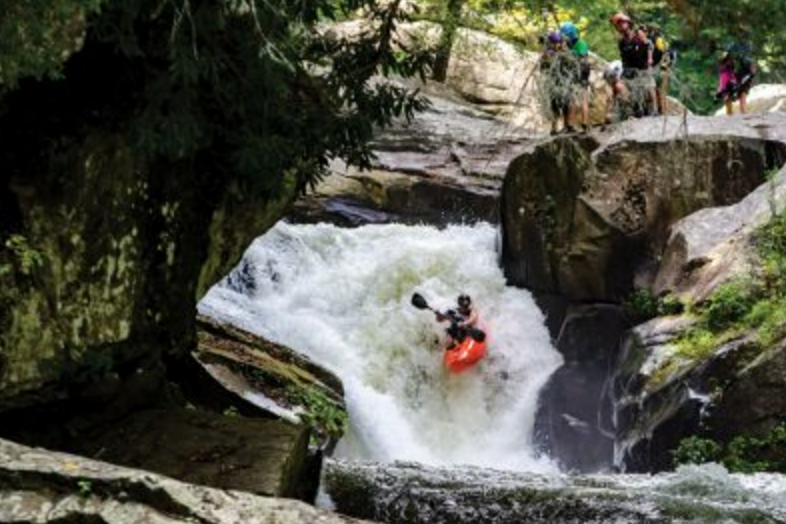 Mary Katherine “MKat” Fields
Mary Katherine “MKat” Fields
CALLS HOME: Chattanooga, Tenn.
STOKED FOR: 22 years
PICKED UP PADDLING: after quitting competitive swimming
CLAIM TO FAME: First female descent of Desoto Falls (75 feet); 3rd place in Green River Race
PADDLES: an old LiquidLogic Stomper
Dream boat: LiquidLogic Flying Squirrel or a Stinger
FAVORITE RAPID: Gorilla. It’s a love-hate relationship.
PADDLING HEROES: Hunt Jennings, Katie Dean, Erin Savage.
PRE-PADDLE JAMS: Guns N’ Roses. Appetite for Destruction.
POST-PADDLE FUEL: Barbeque
LITTLE KNOWN FACT: I have an unhealthy habit of watching too much Netflix.
LESSONS LEARNED FROM THE COCKPIT: Just be yourself. Don’t try to outdo anyone. There are a lot more people pushing themselves harder than they’re ready. As a female, don’t think you have to push the sport more than you need to.
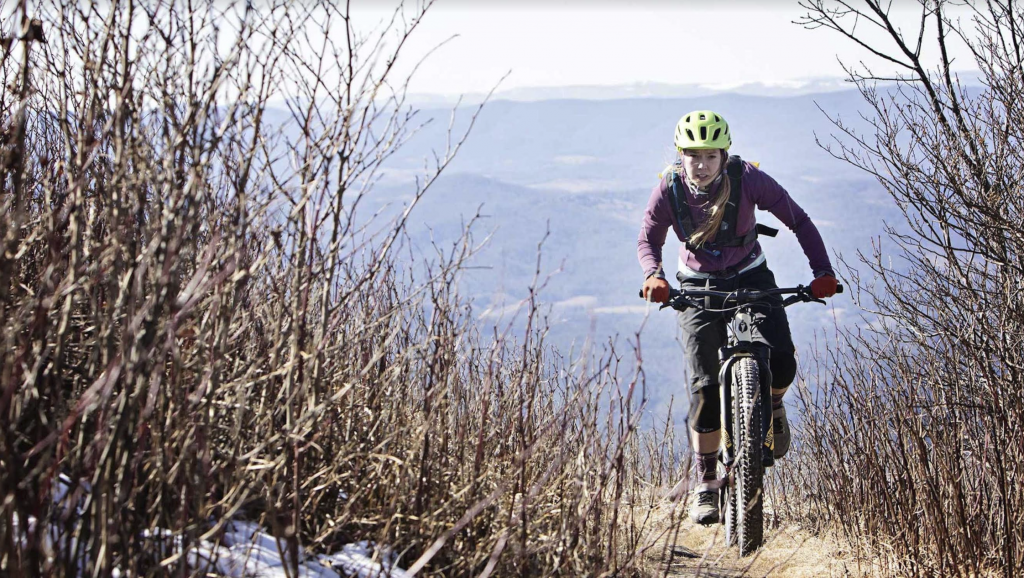 Lindsey Carpenter
Lindsey Carpenter
CALLS HOME: Harrisonburg, Va.
STOKED FOR: 20 years
BEEN BIKING: since birth
CLAIM TO FAME: Finished the Shenandoah Mountain 100 in 10.5 hours at age 19, top three finishes at the Michaux Endurance Series, winning the 2015 Massanutten Enduro and Pro XC.
RIDES: Trek Superfly 9.8, 29er, hardtail.
DREAM BIKE: Santa Cruz SOLO, black and blue
FAVORITE RIDE: Out the door from Harrisonburg to Massanutten, around the trails, and back to town.
BIKING HEROES: Sue Haywood and Dad.
PRE-RIDE JAMS: Britney Spears Pandora kinda does it for me.
MID-RIDE FUEL: Boiled potatoes. Sometimes steak or bacon. I have a lot of allergies and intolerances—dairy, nuts, gluten, soy, shellfish. And those are just a couple of examples.
LITTEL KNOWN FACT: I also bird and deer hunt. And I have a sugar addiction, mainly for Starburst. The pink ones. Always.
LESSONS LEARNED FROM THE SADDLE: You’re gonna get dropped and you’re gonna be the last person that everyone waits on and you’re gonna cry and throw your bike but that’s just the initial threshold for fitness and skill. It’s just a matter of putting the time in.
